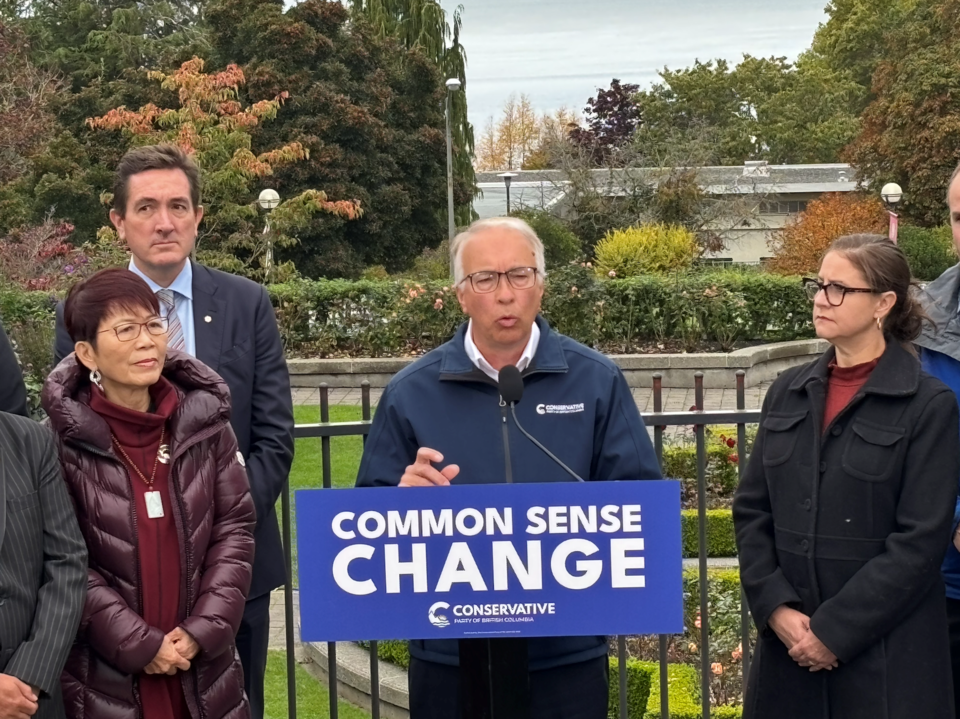Over the past few weeks, in the lead-up to the October 19 provincial election, B.C. Conservative Leader John Rustad has been teasing out his party’s platform, plank by plank, with many of those planks focused on reforms that would boost B.C.’s forestry, mining and oil and gas.
He has also vowed that a Conservative government would repeal the Declaration on the Rights of Indigenous Peoples Act (DRIPA), and focus more on economic reconciliation.
A Conservative platform released today provides more details on the latter, including the “return” of land to First Nations, including forest land.
“Returning land to First Nations is critical for achieving economic self-sufficiency while addressing legal uncertainties surrounding rights and title,” the platform’s section on economic reconciliation vows. “This approach will help resolve long-standing issues related to Section 35 of the Constitution, which recognizes and affirms the existing Indigenous and treaty rights of First Nations.”
The planks on economic reconciliation include returning 20 per cent of B.C.’s forests to First Nations “to manage these resources sustainably and in line with their traditions and values.”
It also promises loan guarantees to First Nations to allow them to acquire equity positions in “natural resources and other major commercial projects.”
The Conservatives are also promising to “step up” where the federal government is failing to provide basic necessities to First Nations, such as safe housing and clean drinking water.
The platform notes that the federal government is ultimately responsible for basic services, like drinking water. But many First Nations communities in Canada, including B.C., continue to be under boil water advisories, as the federal government has been slow to provide safe drinking water for remote indigenous communities.
In those case where the federal government is failing to meet its obligations, a provincial government will step in to provide those basic services and “then pursue reimbursement from the federal government through the appropriate legal avenues, ensuring that Ottawa’s responsibilities are met.”
The platform also commits to the transfer of authority for child welfare and family services to First Nations.
As for DRIPA, the platform says a Conservative government will use the United Nations Declaration on the Rights of Indigenous Peoples (UNDRIP) as a guide, and will replace DRIPA with something else.
“Our government will work in partnership with First Nations to develop new legislation that advances, not stalls, economic reconciliation and Indigenous autonomy.”
Forestry and mining
To address a crisis in B.C.’s forestry sector, which has been ravaged by sawmill and pulp mill closures and curtailments, Rustad has in recent weeks pledged to replace the current stumpage system with a value-added tax on end products, and switch from sawlog annual allowable cut (AAC) to a fibre-based AAC – a move aimed at proving incentives to salvage some of the waste timber that currently goes to waste and could be used for bioenergy, wood pellets and pulp and paper making.
The Conservative platform on forestry notes that 64 per cent of B.C. is forested (60 million hectares.) It pledges to ensure nearly two-thirds of that will never see the chainsaw, but “will remain in its original forested state and will never see industrial-scale forestry activity.”
The remaining one-third -- 22 million hectares -- will be “managed to achieve supply chain stability in B.C.’s forest sector as well as to enhance biodiversity and ecological qualities.”
A Conservative government would “define the land area that will be prioritized for the harvest of primary forest products” -- something the B.C. Council of Forest Industries (COFI) has pressed for.
The platform also would encourage harvesting in areas damaged by wildfires or “forest health issues.”
On mining, the platform pledges to review mining regulations with the goal of removing “unnecessary or duplicative requirements that do not meaningfully contribute to safety or environmental protection,” and review tax competitiveness.
It also vows to “reverse the NDP’s unprecedented March 2024 cabinet orders which make (mineral) exploration effectively impossible in certain areas of B.C.”
More generally, the platform pledges to reduce the regulatory burden in B.C. by at least 25 per cent in the first term of office.
“A minister responsible for Red Tape Reduction and Deregulation will be appointed to identify and repeal unnecessary red tape that ties-up our economy in bottlenecks.”




